At Batloun Valley
Botanical Garden
Mushroom hunt hike with experts Sandra Sleiman, Dr. Antione Daher and botanist Hisham al Zein.
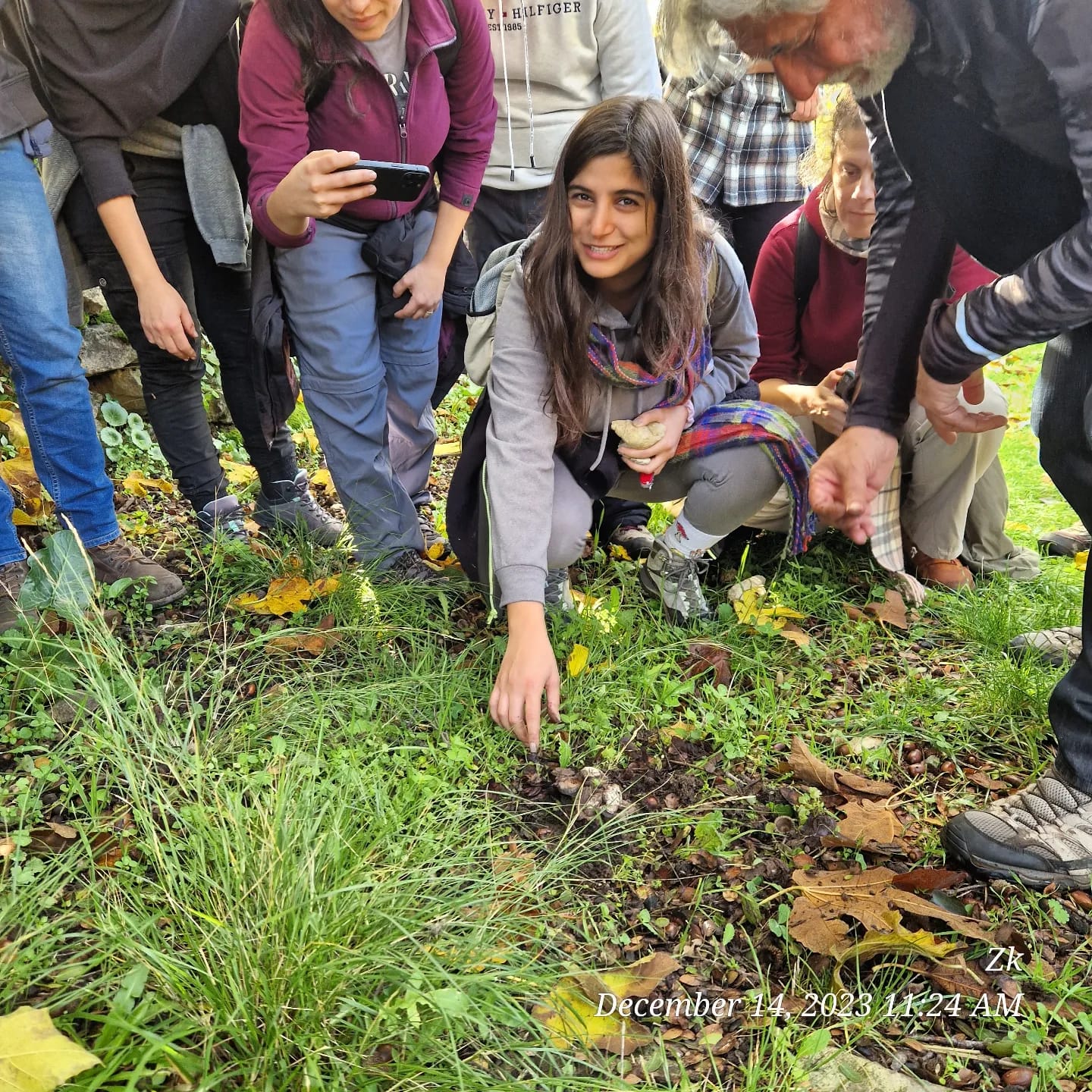
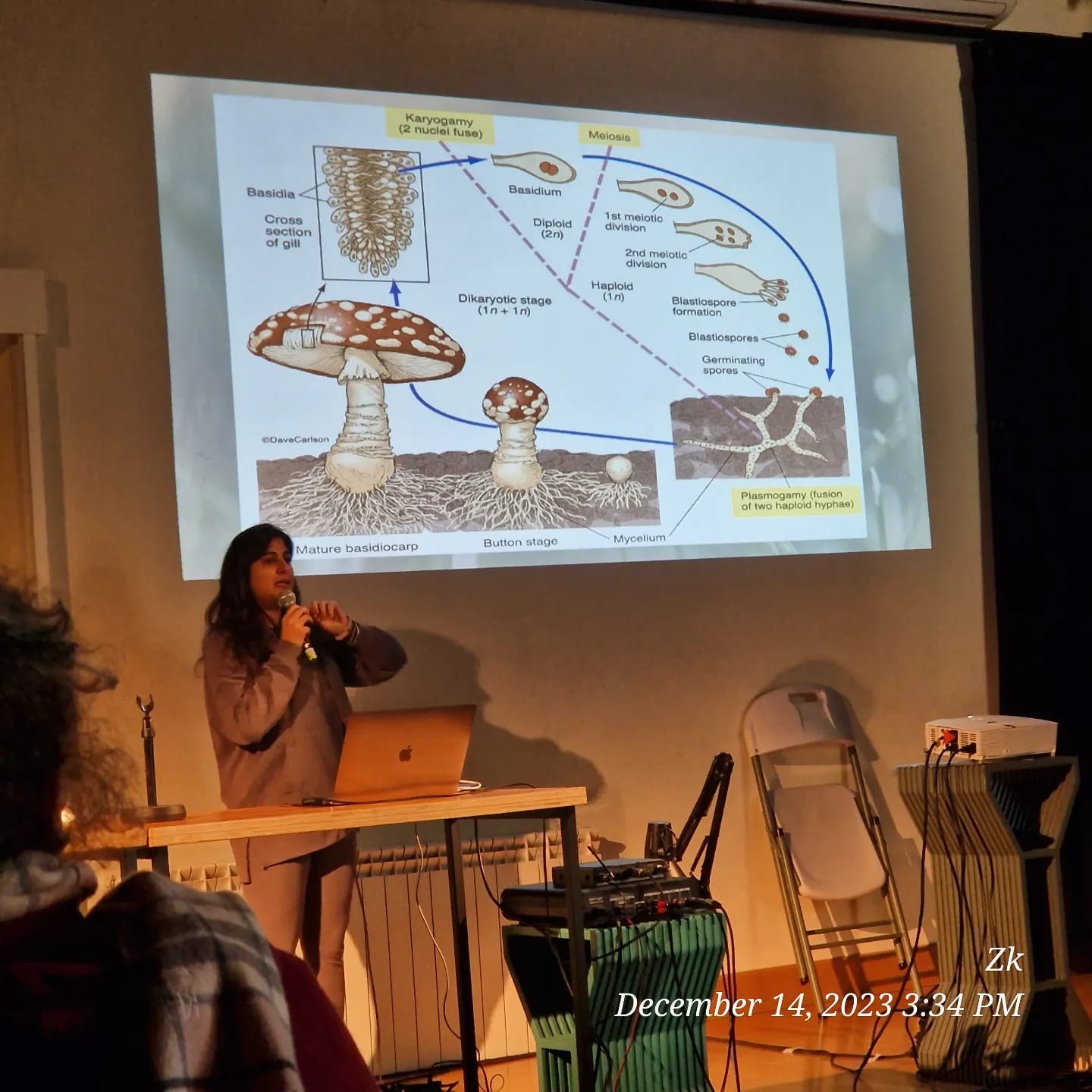
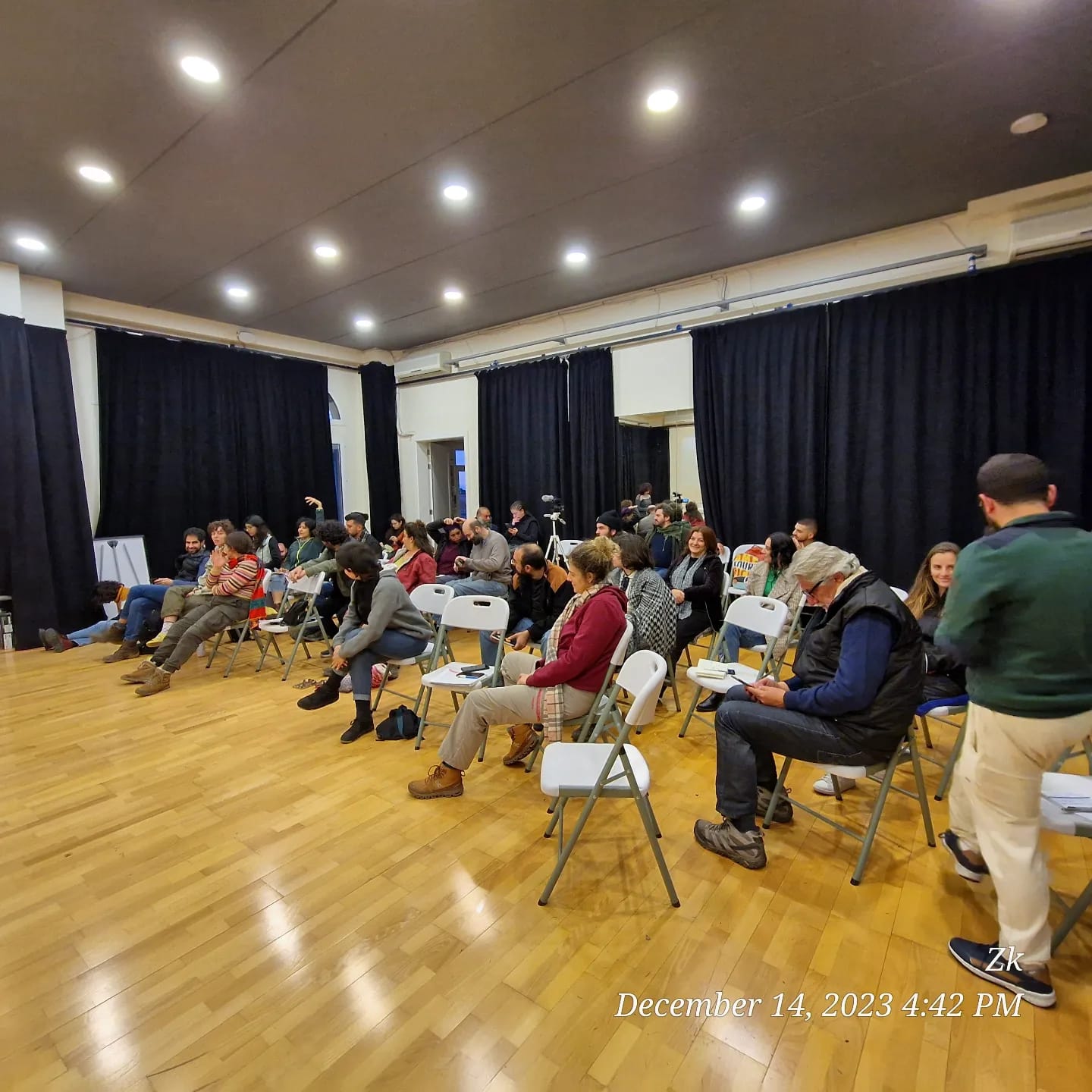
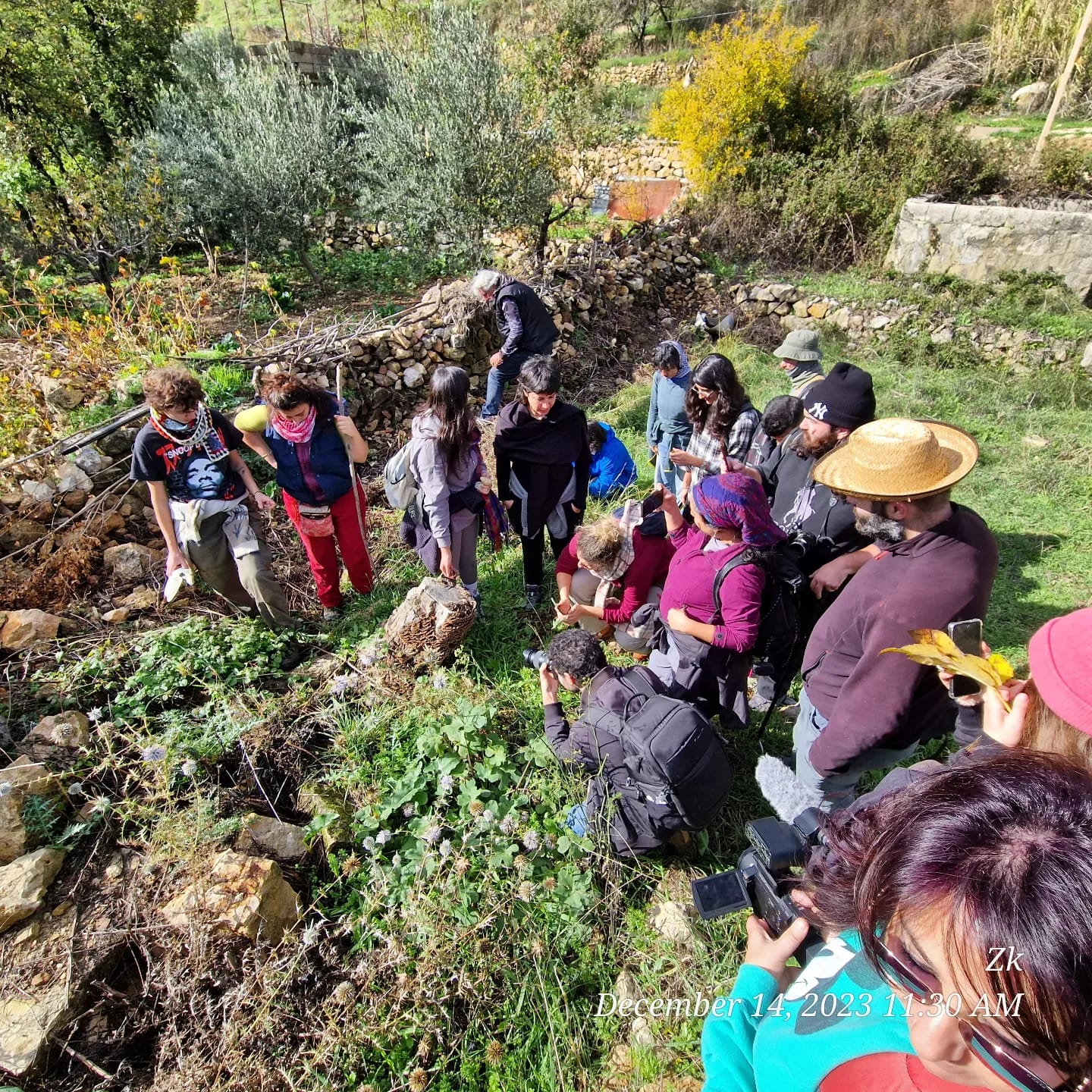
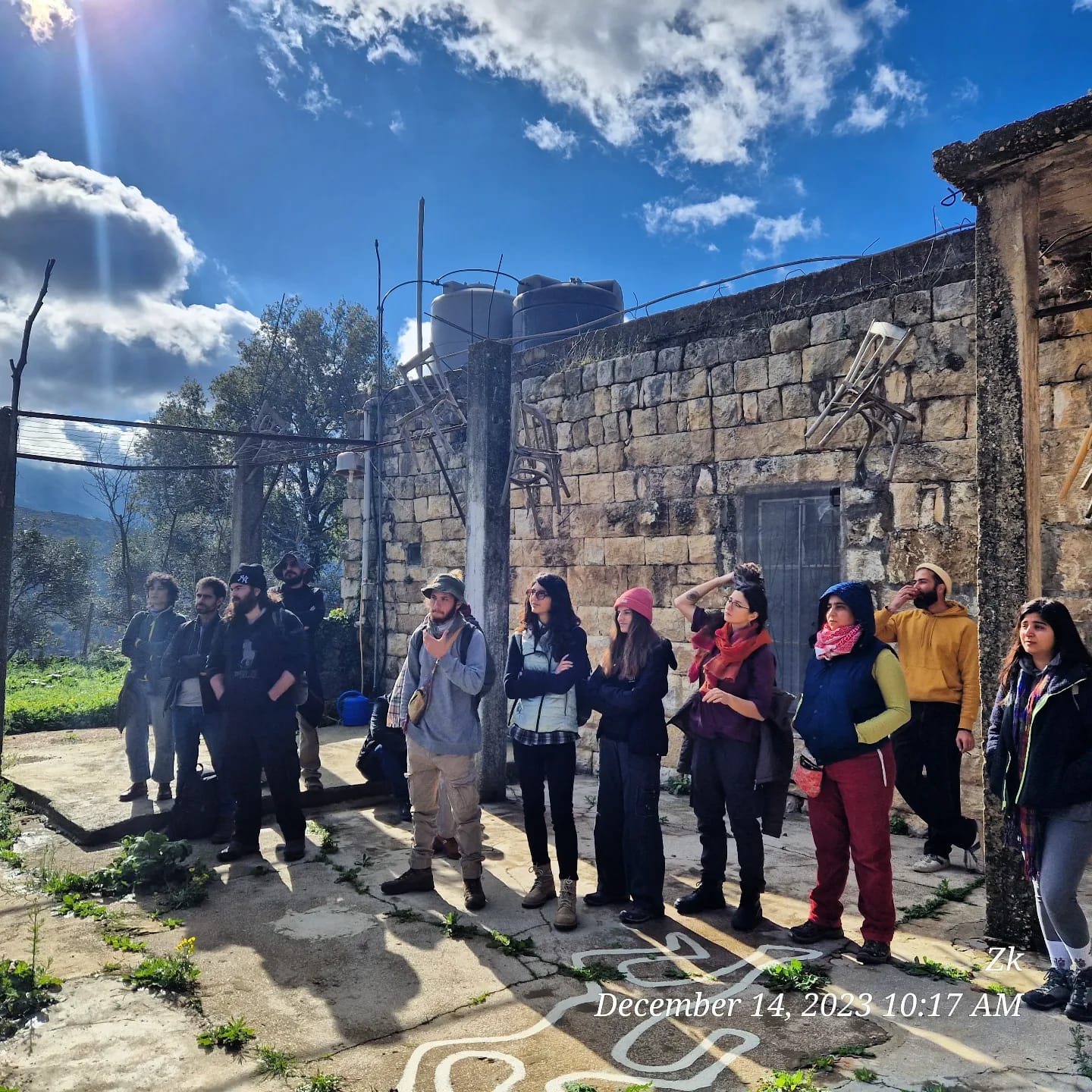
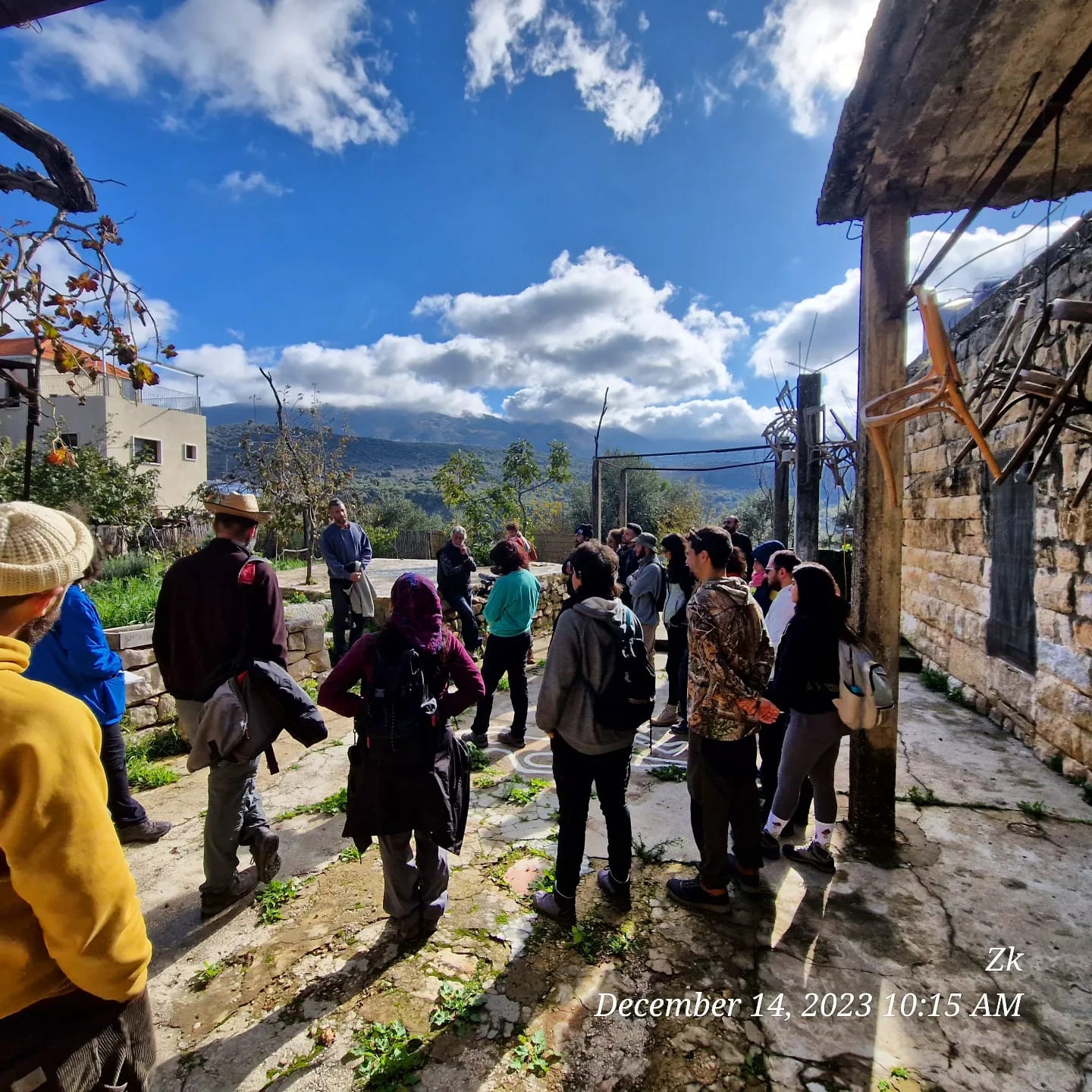
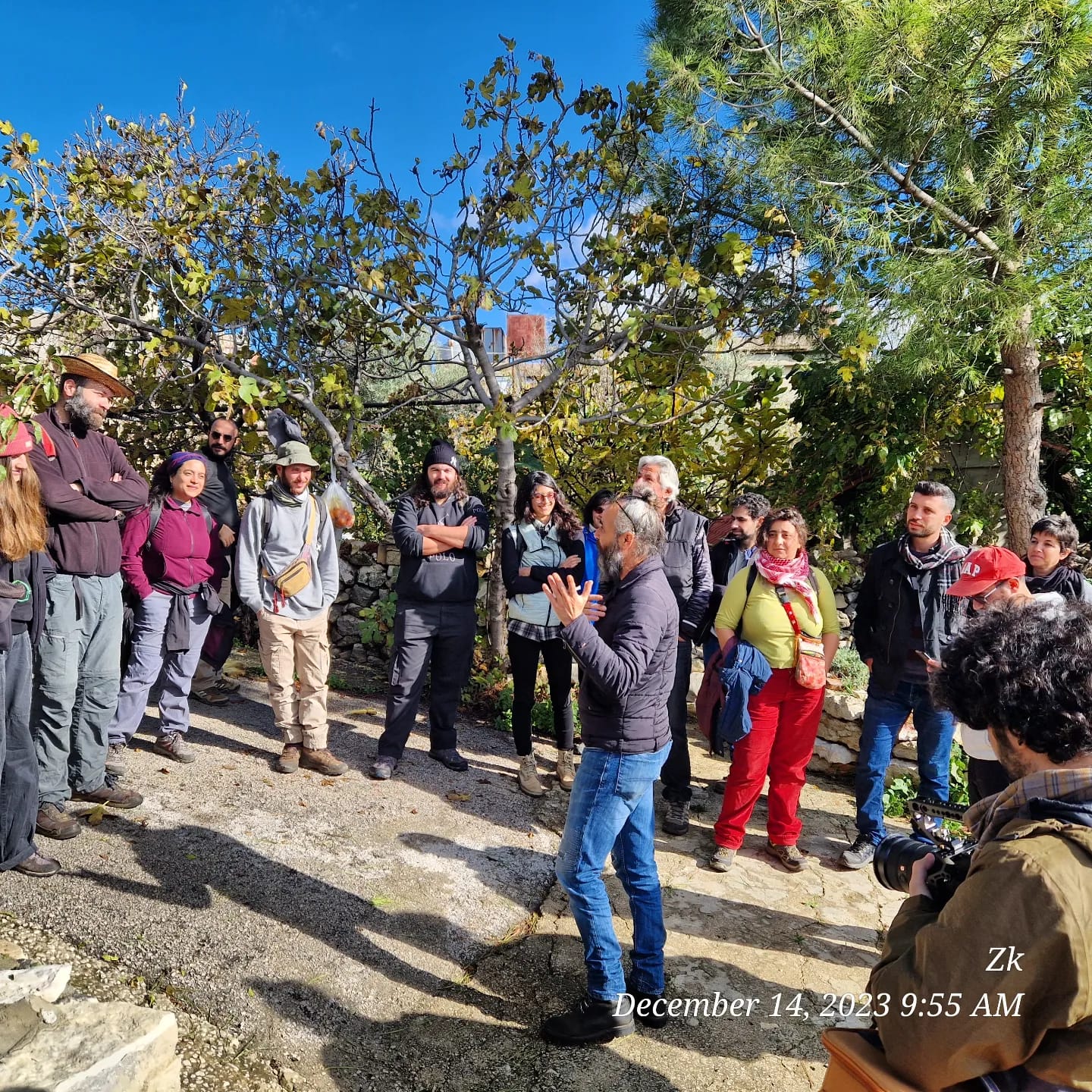
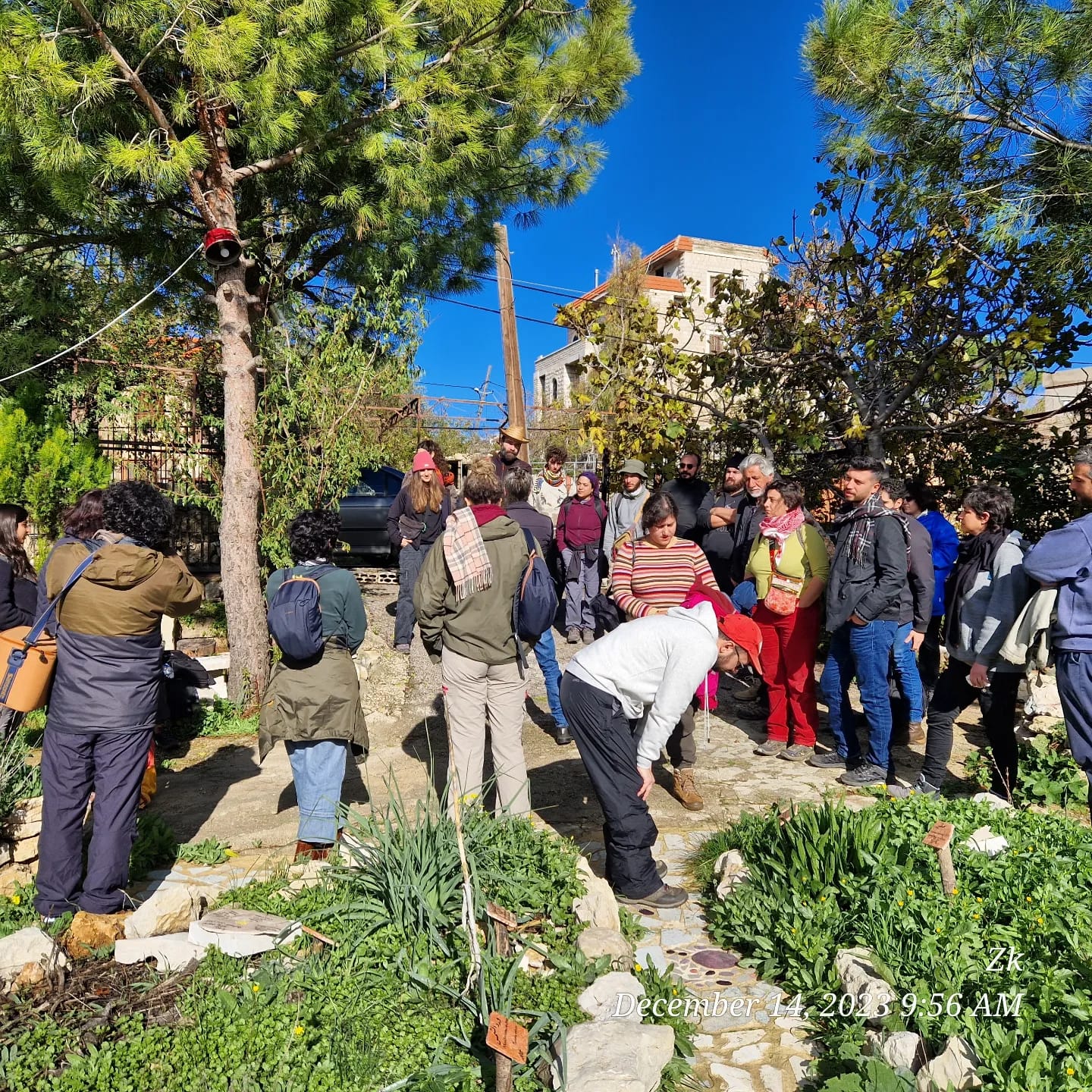
The Second Installation of the Plants' Names
Tariq el Nahl Collective and Beit Sarmada are very grateful to our friends who were involved into the second installation of the plants’ names in the native botanical garden of Batloun (Chouf) the first week of October 2023. This amazing work was possible thanks to the calligraphic skills of Marwa Abou Khalil who wrote the names of 145 plant species. The installation was carried out in less than 2 days thanks to the organization and efficiency of our amazing friends:
- Charlotte Gaudreau
- Racha Ghanem
- Yvan Lefauve
- Hadi Deaibes
- Mirna Mkhaiber
The finalization of the installation of structures in the garden was funded by BGCI’s Global Botanic Garden Fund.
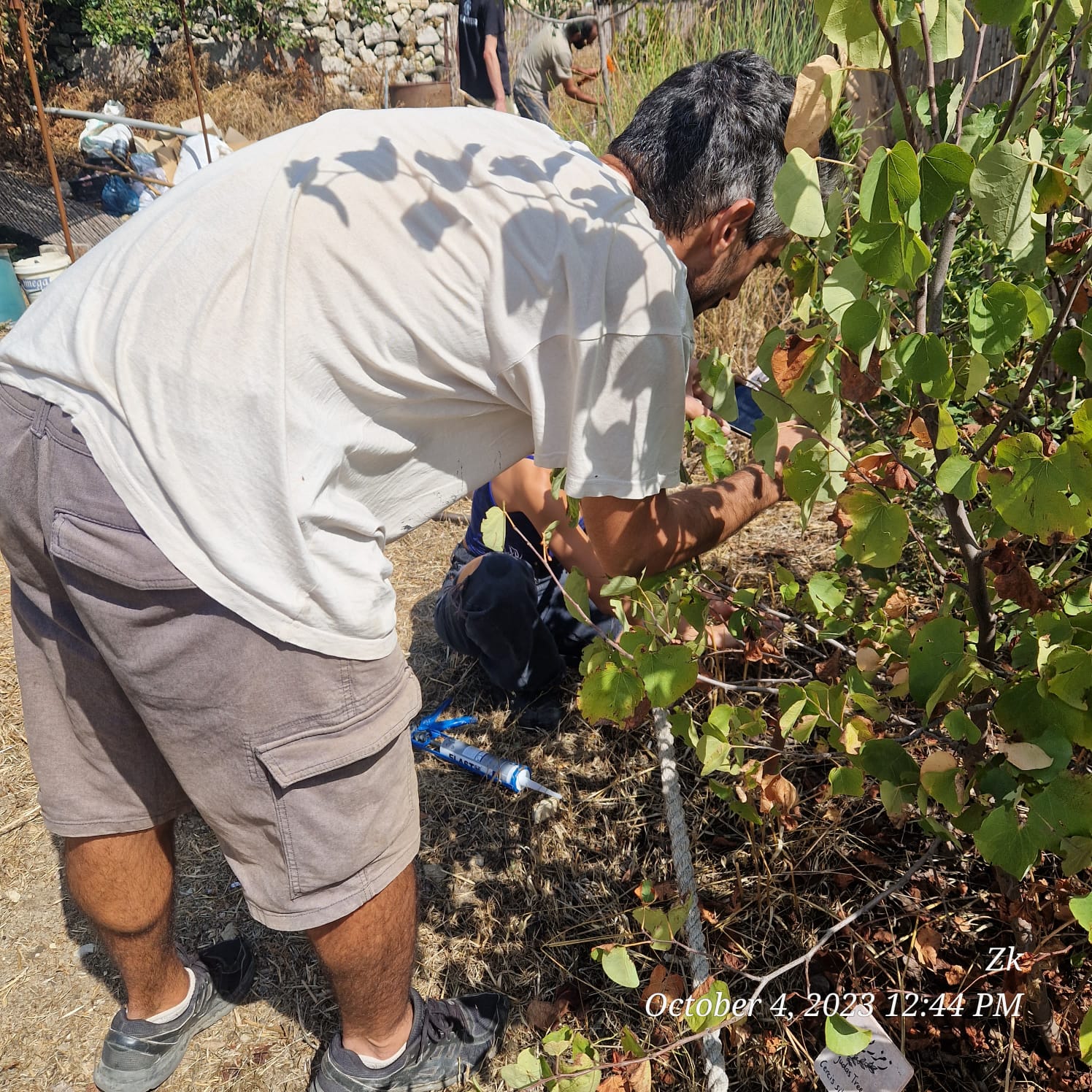
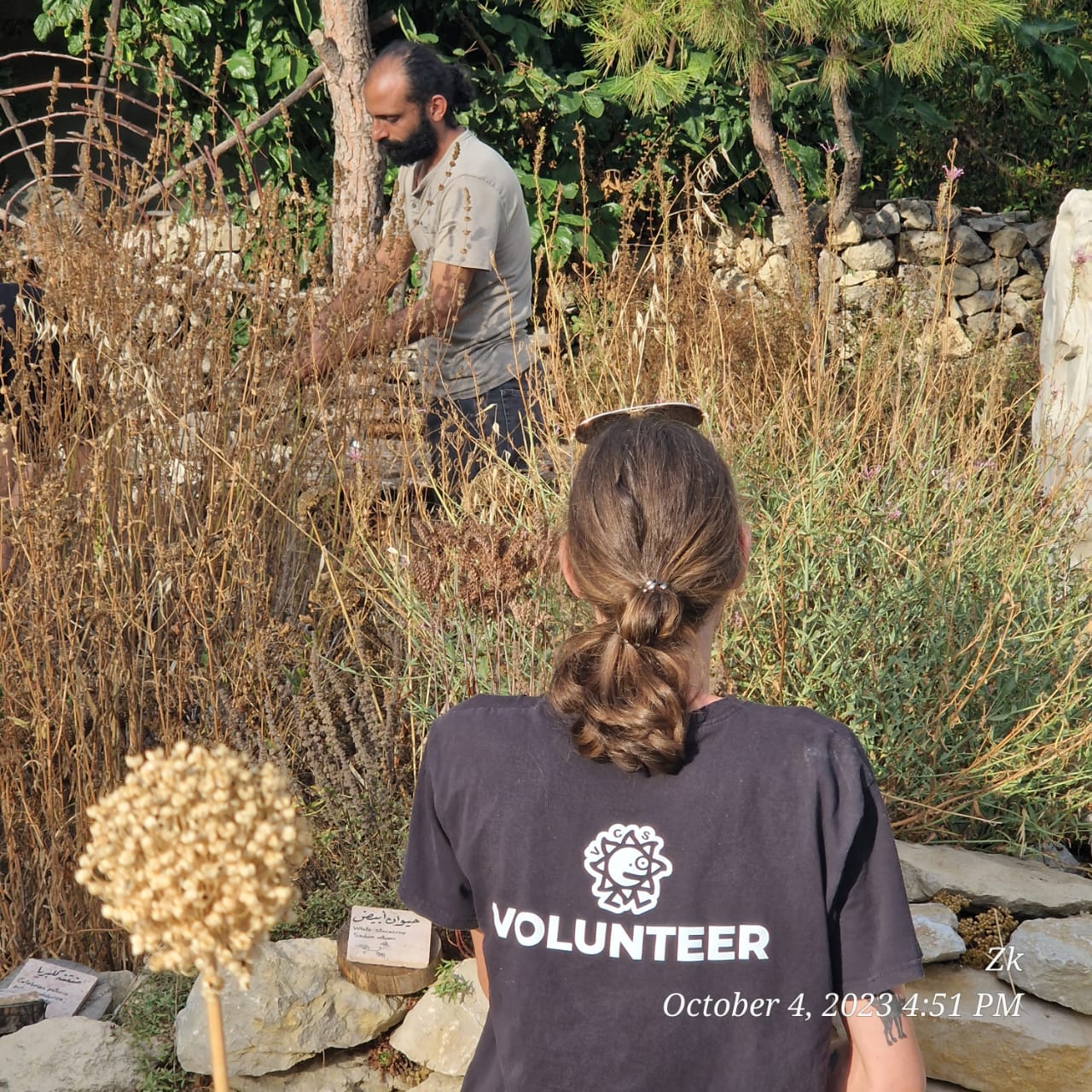
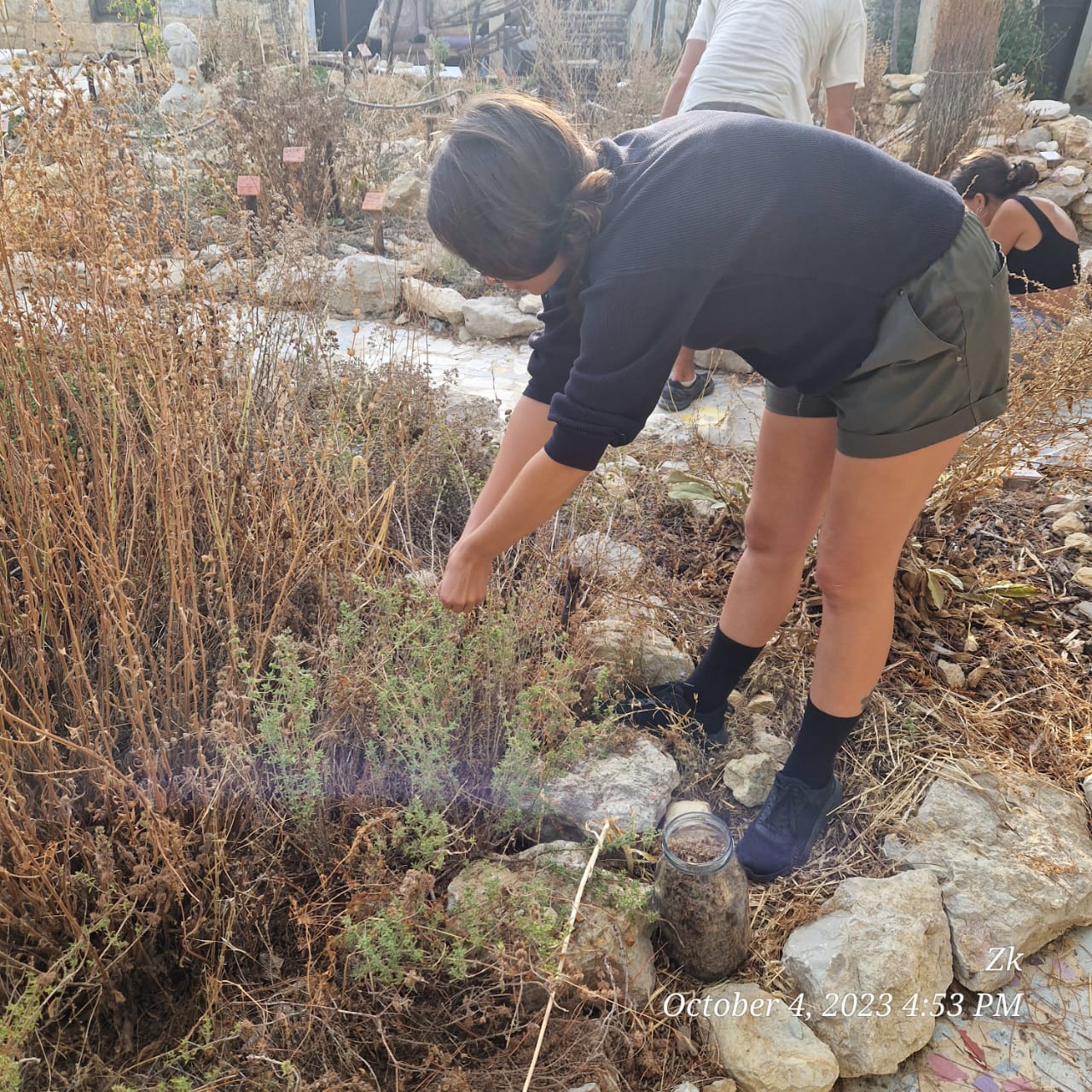
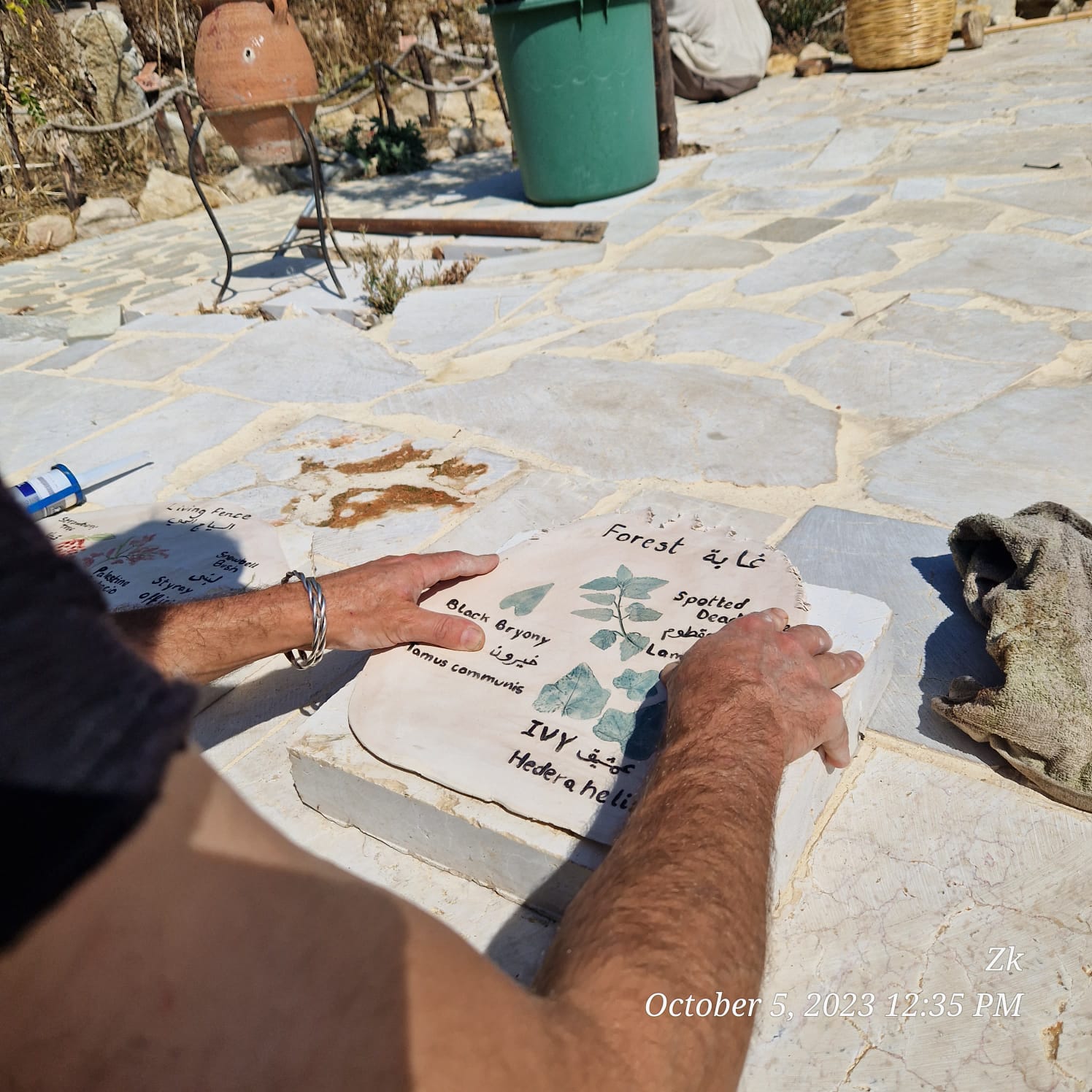
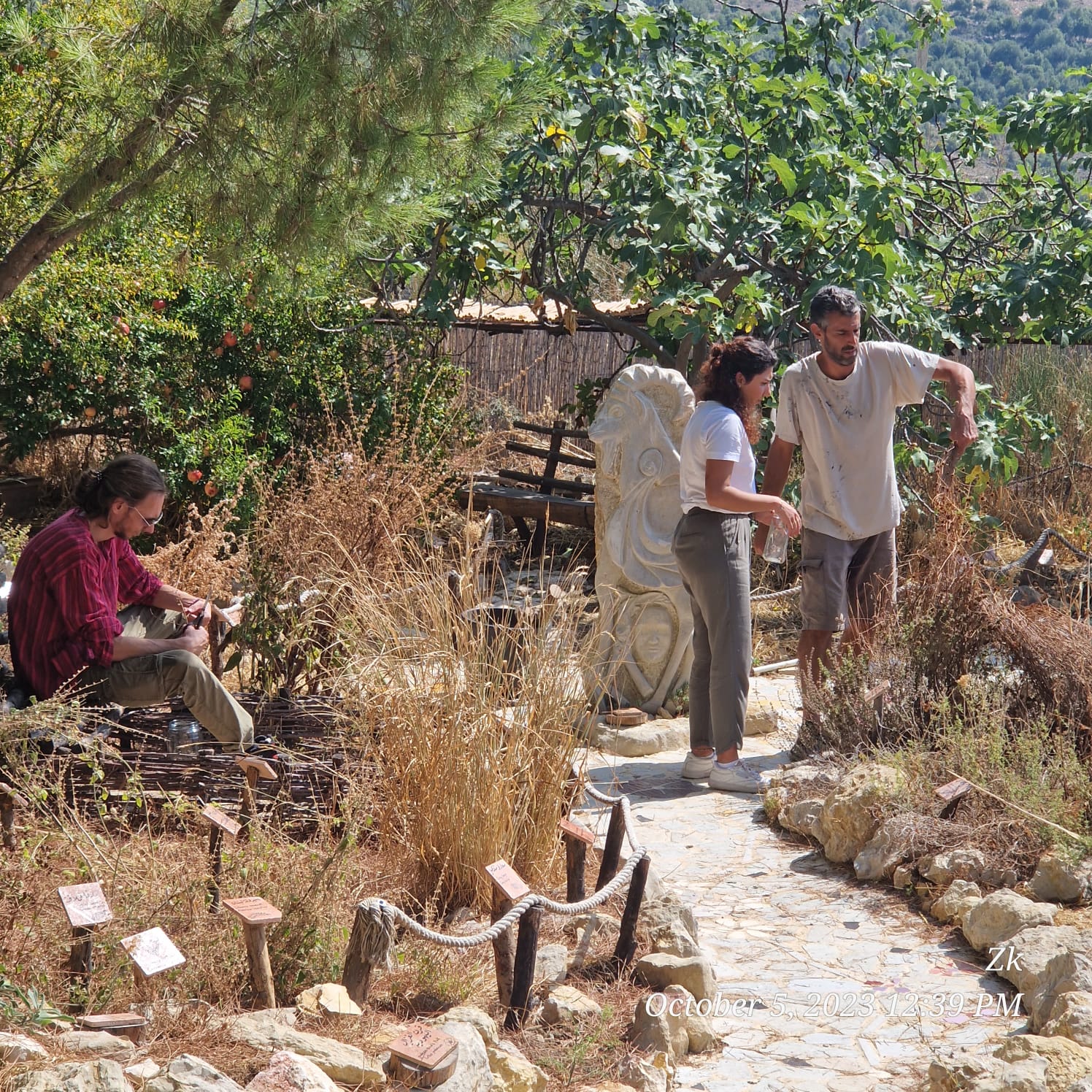
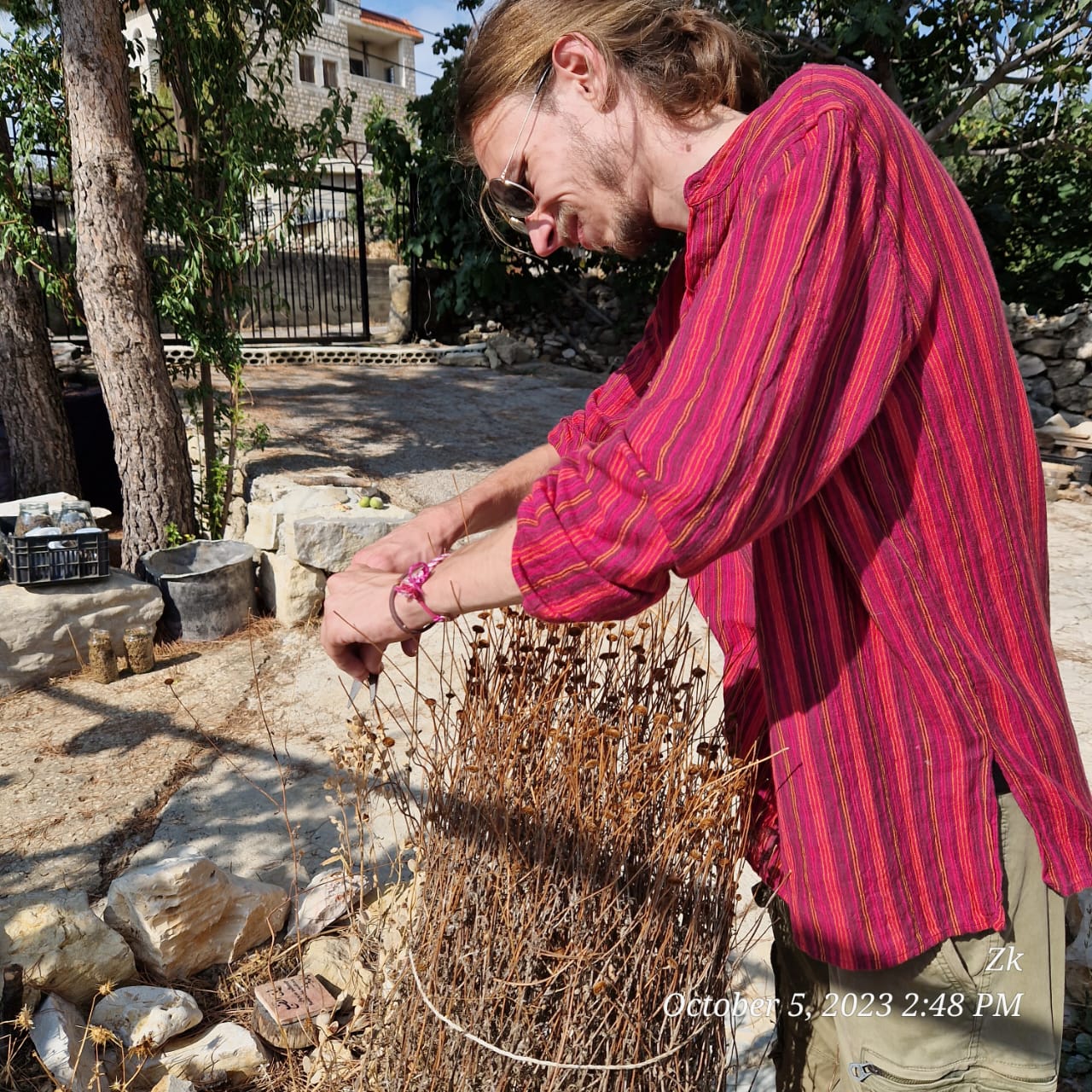
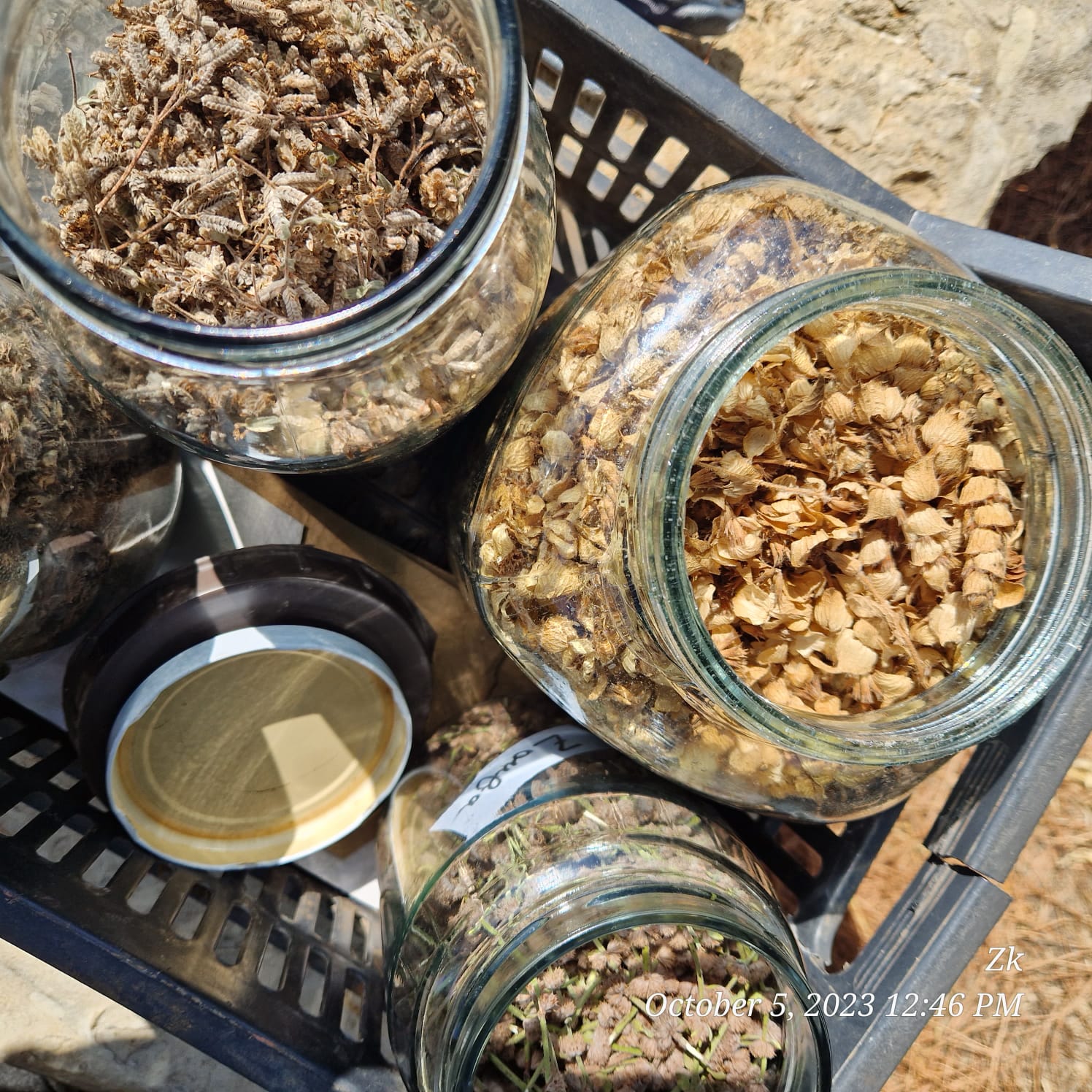
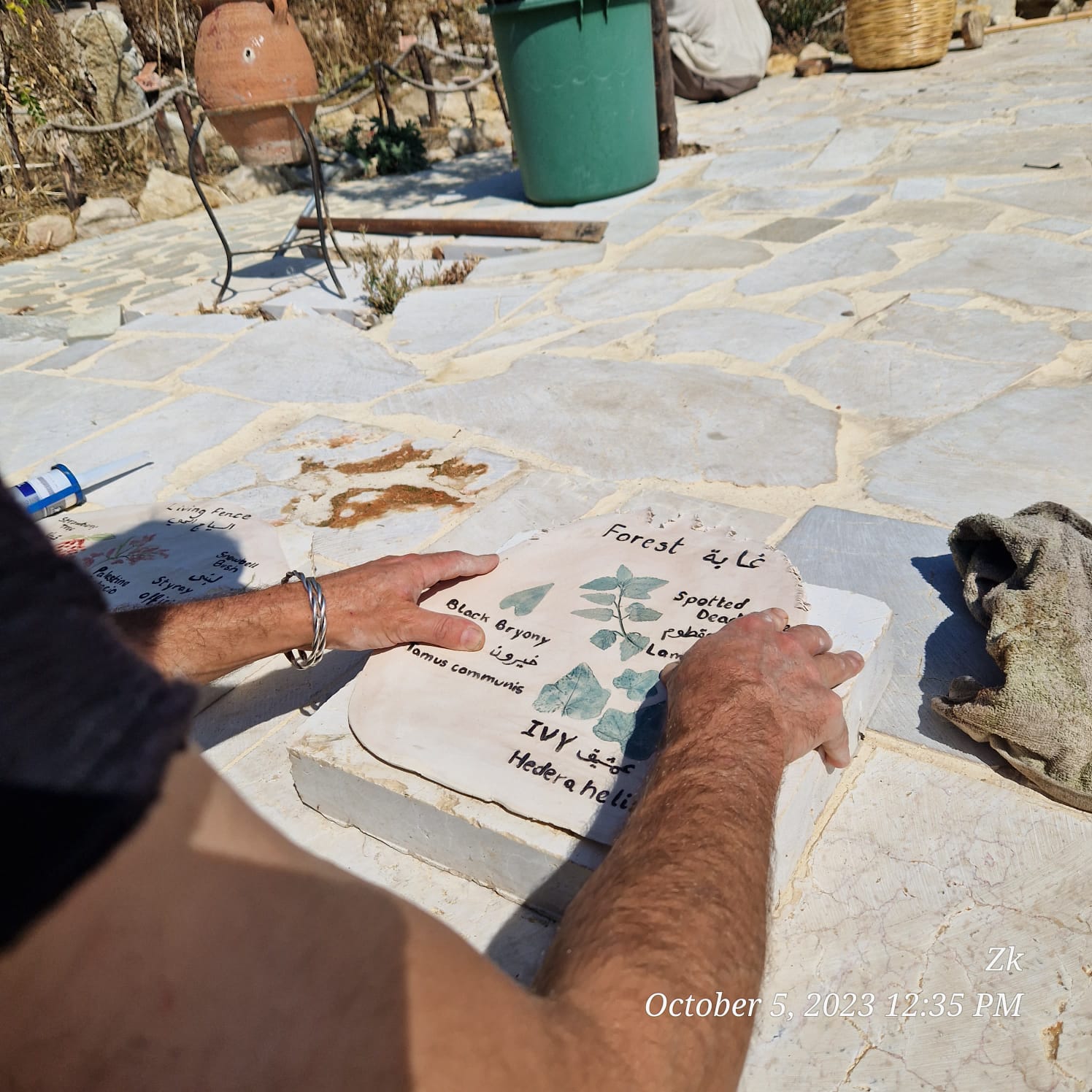
100+ Wild Species from Batloun Valley
Beit Sarmada’s garden has been cultivated into a regional native botanical garden, representing 100+ wild species from Batloun Valley. This garden, aims to raise awareness to the plant diversity that grows around us, firstly for their protection, and secondly for their use in medicine, arts, and local cultivation for pollinator habitats. The dimensions of the garden include: seed collection from Batloun valley, propagation in native nursery, seed bank of all included species available to visitors, artistic interventions by local traditional artists, and brochures that include scientific descriptions, folk stories, and cultivation methods. This garden will be used as a base for a full curriculum targeted towards children of the region to learn about our native plants, organic agriculture, local insects and animals, and much more. The floor trails have handmade mosaic figures, a water fountain and a pond, wooden benches handmade and a number of three sculptures decorate the corners of it!
Sarmada Insists on the importance of botany in the area of economic productivity because it is involved in the study of crops and ideal growing techniques that helps farmers increase crop yield.
Teaching young people about botany prepares them to tackle the big problems of feeding large populations. Vegetable gardening and landscaping. How do landscapers know which plants will thrive in a given environment? How do they know which ones will complement each other? People need to know their particular plants’ needs. They also need to know how to approach pest control and methods to improve the quality of the vegetables or flowers. All of these things involve some knowledge of botany. Teaching young people about gardening prepares them to successfully grow their own food and also create beauty. In recent years, growing your own food has become more and more important as challenges arise with transporting food worldwide, also providing the benefits of eating seasonally.
This may not be a pressing need, but another reason why botany is important is wilderness survival. Most of us will never find ourselves in the situation of being lost in the woods, desert, or mountains. But, it does happen. And, in some parts of the world, people still forage for food and rely on the forest for sustenance. Knowing which plants are good for food, which ones are good for medicine, and which ones are poisonous could save ones’ life. Another benefit of teaching botany is a better understanding of the role of plants in energy use and production. The study of plants also helps provide clues about solar energy and other renewable energy sources.
Lastly, knowing which trees to plant to improve air quality in cities and suburbs helps make them cleaner and more beautiful places to live. Learning about the best houseplants for cleaning indoor air can combat building sickness. And, studying wetlands offers some answers to water pollution problems and controlling flooding issues. All this is to be taught to youngsters and school students at Beit Sarmada’s Botanical Garden!
The reasons why botany is important is that botany is the only science you can’t live without. Air, water, and food all come through plants. Learning more about them may not only save your life, but it may make it better, too.




















